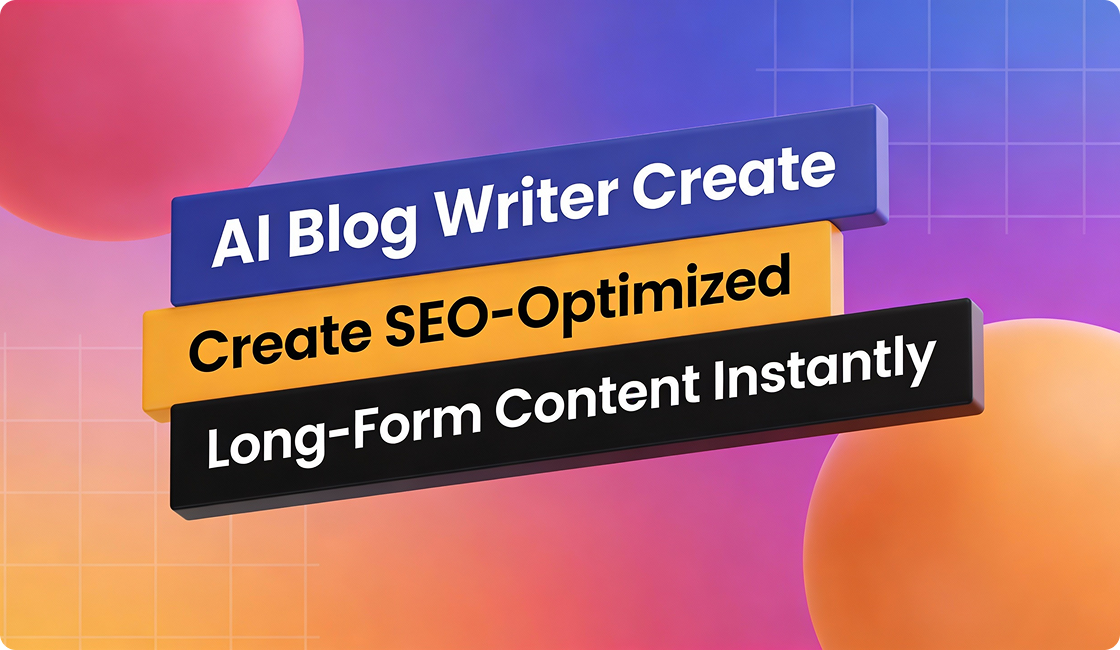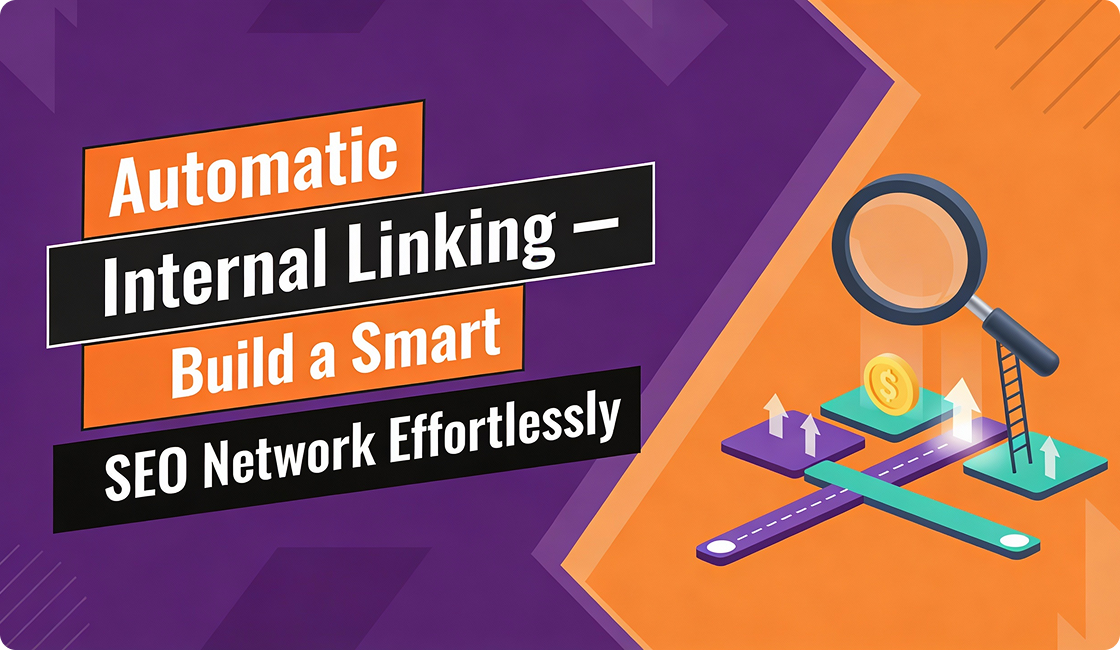An SEO audit involves a thorough analysis of a website to identify strengths, weaknesses, and opportunities for improvement in search engine optimization (SEO). It’s the first step in creating an actionable plan that results in more organic search traffic, an improved user experience, and higher conversions. Regular SEO audits ensure a website stays relevant and performs well in search engine results.
As technology evolves, the methods used in conducting SEO audits are also advancing. Integrating artificial intelligence (AI) into SEO strategies is a groundbreaking advancement. The concept of how to use AI for SEO audits is transforming the traditional approach, making the process more efficient and insightful.
According to Search Engine Land, 10% of marketers use AI for SEO content generation, and 58% are planning to use it for their content generation. Using AI in SEO audits opens up new possibilities for website optimization. It allows for more comprehensive SEO audits, detailed analysis of SEO strategies, and precise recommendations
By integrating AI, businesses can conduct more comprehensive and accurate SEO audits in a fraction of the time it would take manually. AI for SEO allows for deeper data analysis, trend identification, and predictive insights that can refine and elevate the entire SEO strategy.
In this tutorial article, we will guide you through the process of using AI for SEO, specifically focusing on performing a complete SEO audit for your website.
Table of Contents
Why Do You Need An SEO Audit?
SEO audits are important for any website looking to improve its online presence and search engine ranking. The primary purpose of an SEO audit is to identify why a website might not be performing well in search rankings, to identify opportunities for improvement, and to devise a strategy for enhancing the overall online presence.
Here are key reasons why an SEO audit is important:
1. Identifying Technical Issues
SEO audits help detect technical problems that may hinder your website’s performance in search engine rankings. Issues like slow loading times, broken links, or crawl errors can significantly impact user experience and SEO.
2. Adapting to Search Engine Algorithm Changes
Search engines like Google frequently update their algorithms. An SEO audit allows you to adapt to these changes, ensuring your website aligns with the latest search engine guidelines and practices.
3. Enhancing User Experience
SEO audits analyze website navigation, content relevance, and mobile-friendliness. Improving these factors enhances the overall user experience, a critical SEO component.
4. Understanding Your Audience
Through an SEO audit, you can gain insights into what your audience is looking for and how they interact with your website. This information is vital for tailoring your content and SEO strategies to meet their needs.
5. Competitive Analysis
An SEO audit includes analyzing your competitors’ strategies. Understanding what your competitors are doing right (or wrong) can help you identify opportunities to improve your own website’s SEO.
6. Content Optimization
Audits help identify content gaps and opportunities. You can determine which pages are performing well and which ones need improvement, ensuring that your content strategy aligns with your SEO goals.
7. Measuring Success
Finally, an SEO audit provides a baseline to measure the effectiveness of your SEO strategies. By regularly auditing your site, you can track your progress and make data-driven decisions to enhance your website’s search engine performance.
An SEO audit is a comprehensive way that identifies areas for improvement and shapes the strategic direction for your website’s ongoing optimization. It’s a vital process for anyone looking to improve their website’s visibility and effectiveness in attracting and engaging their target audience.
Benefits of Using AI for SEO Audits
Integrating AI into SEO audits brings many advantages that can significantly enhance the efficiency and effectiveness of your SEO strategy.
According to Hubspot, 75% of bloggers and SEO professionals agree that AI/automation tools will be able to do most SEO-related tasks completely independently by 2024. With 70% acknowledging that AI and automation tools can optimize their website for SEO more efficiently, the adoption of AI-powered tools for optimizing websites for organic content is rapidly becoming a common practice.
Here are some of the key benefits of using AI for SEO Audits:
1. Accuracy and Efficiency in Data Analysis
AI’s ability to process and analyze large volumes of data rapidly and accurately is one of its most significant benefits. In the context of an SEO audit, this means quickly identifying issues and opportunities that might take humans much longer to uncover.
AI can sift through data on backlinks, keywords, content quality, and more, providing precise insights and recommendations. This high level of accuracy and efficiency helps in making informed decisions faster.
2. Real-Time Updates and Predictive Insights
Another advantage of AI in SEO audits is its ability to provide real-time data and predictive insights. Traditional SEO audits can often be time-consuming, and some of the data may already be outdated by the time they are completed. AI systems, on the other hand, can monitor and analyze website performance continuously, offering up-to-date information.
Moreover, AI’s predictive capabilities allow for forecasting future trends and potential issues, enabling proactive adjustments to your SEO strategy.
3. Customization and Scalability for Various Business Sizes
AI-based SEO tools are highly adaptable, making them suitable for businesses of all sizes. AI can provide cost-effective, straightforward solutions for small businesses that focus on the most impactful SEO elements.
Larger enterprises can leverage AI’s scalability to handle more complex, larger-scale SEO initiatives that involve vast amounts of data and intricate website structures. This level of customization ensures that businesses can use AI for SEO audits in a way that best suits their specific needs and goals.
Preparing for an SEO Audit of Your Website
Conducting an SEO audit is important in understanding and improving your website’s performance. Proper preparation is key to ensuring that the audit is both thorough and effective.
Here’s how you can prepare for an SEO audit of your website:
1. Define Your Objectives
Begin by clarifying what you want to achieve with the SEO audit. Are you looking to improve your search engine rankings, increase traffic, enhance user experience, or all of the above? Setting clear objectives will guide the focus of your audit.
2. Gather Necessary Tools and Resources
Equip yourself with the right tools for the audit. This includes SEO analysis tools, some of which may use AI to provide deeper insights. Make sure you have access to your website’s analytics, webmaster tools, and any other relevant platforms.
3. Understand Your Audience
Knowing your target audience is crucial for a successful SEO strategy. Gather data on your audience’s preferences, behavior, and search patterns. This information will help tailor the audit to better align with your audience’s needs.
4. Review Your Website’s Structure
Familiarize yourself with your website’s current structure. Identify the main sections, how they are interconnected, and any existing navigation or user experience issues.
5. Compile a List of Keywords
Prepare a list of keywords relevant to your business and industry. This list should include both the keywords you are currently ranking for and those you aim to rank for.
6. Analyze Competitor Websites
Understanding what your competitors are doing can provide valuable insights. Analyze their websites to identify what they are doing well and areas where your site can improve.
7. Check for Technical Issues
Identify any known technical issues with your site, such as slow loading times, mobile incompatibility, or security concerns. These issues should be a priority during the audit.
8. Ensure Access to Relevant Data
Make sure you have access to all necessary data, including historical traffic data, backlink profiles, and any previous SEO audit reports.
How to Use AI for SEO Audit: A Step-by-Step Guide
Implementing AI for your SEO strategy can significantly enhance your website’s performance. Here’s a step-by-step guide on how to effectively use AI for SEO:
1. Selecting the Right AI Tools for SEO Audits
- Research AI Tools: Begin by researching available AI tools that specialize in SEO. Look for tools like Ranklytics that offer features like keyword analysis, content optimization, backlink analysis, and user behavior insights.
- Evaluate Features and Compatibility: Choose tools that align with your SEO goals and are compatible with your website’s platform. Consider tools that integrate easily with your existing analytics and data management systems.
- Consider User Reviews and Reputation: Look for reviews and case studies to understand the effectiveness of the tools. Select tools with a good reputation and proven track record.
2. Integrating AI Tools with Your Website
- Setup and Configuration: Once you’ve selected your AI tool, set them up with your website. This might involve installing plugins, setting up API connections, or integrating with your website’s backend.
- Customize Settings: Customize the settings of the AI tools to match your specific SEO objectives. This may include setting target keywords, defining your target audience, and specifying the type of data you wish to analyze.
- Test for Compatibility: Ensure that the AI tools are working correctly and fully integrated with your website without causing disruptions or technical issues.


3. Using AI Tools for Specific SEO Audit Reports
- Run Initial Analysis: Start the audit by running an initial analysis using your AI tools. This will provide a baseline of your website’s current SEO performance.
- On-Page Report Analysis: Utilize AI to conduct a detailed evaluation of each page. This includes checking meta tags, assessing content quality for keyword optimization, and analyzing internal linking structures.
- Ranked Keywords Report: Leverage AI to gain insights on current keyword rankings. Identify which keywords are performing well and uncover opportunities for targeting new, relevant keywords.
- Backlink Analysis: Use AI to evaluate the quality of backlinks, identify potentially harmful links, and suggest authoritative sites for link-building efforts.
- Competitor Analysis: Deploy AI tools to examine competitors’ SEO strategies. Analyze their keyword targeting, backlink profiles, and content strategies to uncover actionable insights.
- User Experience and Behavior Analysis: Apply AI to study user interaction patterns on your site. Look at metrics like bounce rates, navigation paths, and conversion rates to understand and improve user experience.





4. Implementing AI-Driven Recommendations
- Interpreting Insights: Analyze the AI-generated reports to understand areas for improvement. Prioritize actions based on the impact they can have on your SEO performance.
- Applying Changes: Implement AI recommendations systematically. This might involve updating content for better keyword optimization, restructuring web pages for improved user experience, or revising your backlink strategy.
5. Monitoring and Adjusting SEO Strategies
- Continuous Monitoring: Regularly monitor your website’s performance through AI tools to track the impact of changes. Look for shifts in keyword rankings, user engagement, and overall site traffic.
- Strategy Refinement: Use ongoing AI analytics to refine and adjust your SEO strategies. Be prepared to iterate and evolve your approach based on the latest data and trends identified by AI.
By following these steps, you can effectively use AI to perform a comprehensive SEO audit and significantly improve your website’s SEO performance. AI tools offer advanced capabilities that can uncover deep insights and help you stay ahead in the competitive digital landscape.
Best Practices for Using AI in SEO Audits
Utilizing an AI tool in SEO audits can significantly enhance your website’s optimization process. However, it’s important to follow best practices to maximize the benefits. Here are some key guidelines for effectively using AI in SEO audits:
1. Choose the Right AI Tools
Not all AI SEO tools are created equal. Choose the best fit for your business size, industry, and specific SEO goals. Ensure the AI tools can seamlessly integrate with your existing analytics and data management systems.
2. Understand the Limitations of AI
While AI SEO tools can provide incredible insights, they are not a complete replacement for human analysis and creativity. Use AI as a tool to augment your SEO strategy. Understand that AI is only as good as the data it analyzes. Ensure you’re feeding it quality, relevant data.
3. Regularly Update and Train Your AI Systems
As search engine algorithms evolve, ensure your AI SEO tools are updated and trained to adapt to these changes. Regularly provide feedback to your AI SEO tools to help them learn and improve over time.
4. Focus on Data Quality
Accurate, high-quality data is crucial for AI SEO tools to perform effectively. Regularly check and maintain the quality of the data you’re using. When using AI to analyze user data, ensure compliance with data privacy regulations like GDPR.
5. Monitor AI-Driven Changes
Monitor the changes suggested or implemented by AI SEO Stools and monitor their impact on your website’s performance. Be flexible and ready to adjust your strategies based on the insights and results derived from AI analysis.
6. Stay Informed and Educated
The field of AI is rapidly evolving. Stay informed about the latest AI and SEO developments to continuously enhance your strategies.
Conclusion
Integrating AI into SEO audits represents a significant advancement in digital marketing strategies. The key benefits of using AI for SEO audits include enhanced accuracy and efficiency in data analysis, the ability to receive real-time updates and predictive insights, and the versatility to tailor solutions to businesses of various sizes. AI tools transform the complex and time-consuming process of SEO auditing into a more manageable, insightful, and strategic endeavor.
Businesses, especially those striving to stay ahead in the competitive digital landscape, should consider adopting AI to refine their SEO strategies. The use of AI in SEO not only streamlines the audit process but also provides deeper insights, making it easier to identify and implement effective SEO tactics. Embracing AI in SEO audits can lead to better search engine rankings, improved user engagement, and, ultimately, greater business success.
For those interested in exploring AI tools for SEO audits and enhancing their SEO strategies, consider starting with Ranklytics. This tool offers comprehensive features that can significantly improve your website’s search engine performance.
We invite you to explore the world of AI-driven SEO with Ranklytics. Experience firsthand how our platform can transform your website’s SEO audit process. Sign up for a free trial today and see the difference AI can make in optimizing your website for search engines.
Don’t miss out on this opportunity to elevate your website’s SEO strategy with the power of AI. Join us at Ranklytics and take the first step toward achieving your digital marketing goals.
FAQs
1. How to Use AI for SEO?
To use AI for SEO, select AI-powered tools that suit your SEO needs, integrate them with your website, and use them for tasks like keyword research, content analysis, and trend prediction. AI should complement human expertise in strategy development and decision-making.
2. How to Do an SEO Audit?
An SEO audit involves analyzing your website’s structure, content, and technical aspects using SEO tools. Evaluate on-page and off-page elements, check for technical issues, and compare your performance with competitors. Use the insights to improve and optimize your website.
3. How to Do an SEO Audit of Your Website?
To perform an SEO audit of your website, examine website structure, on-page elements, and technical SEO factors. Analyze content quality and backlink profiles and compare them with competitors. Implement changes based on the audit’s findings and continuously monitor performance.













